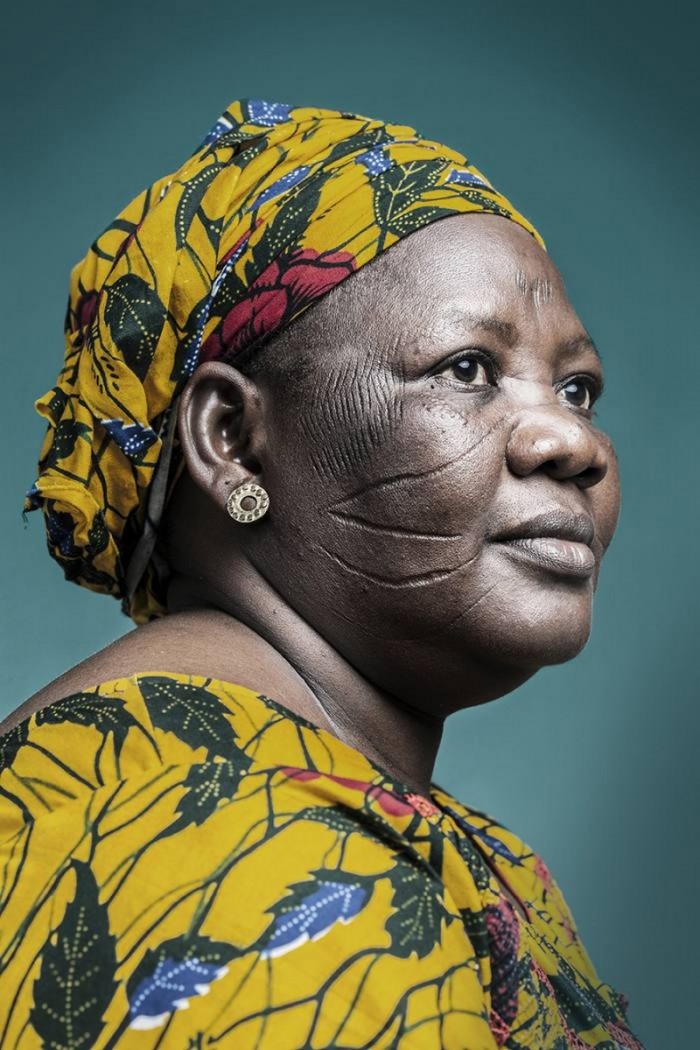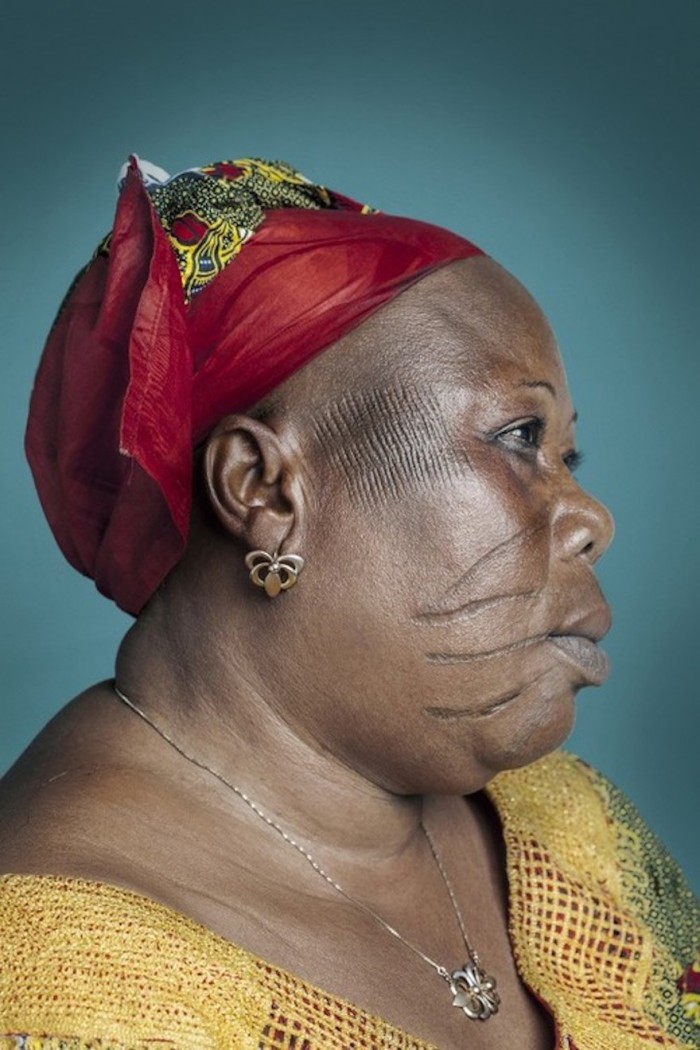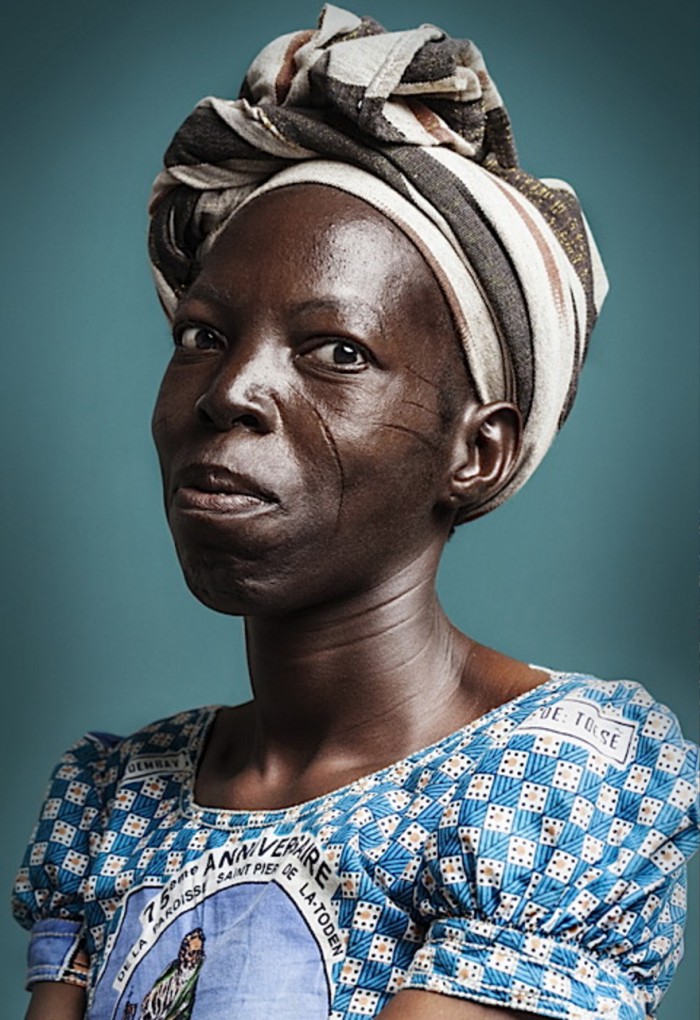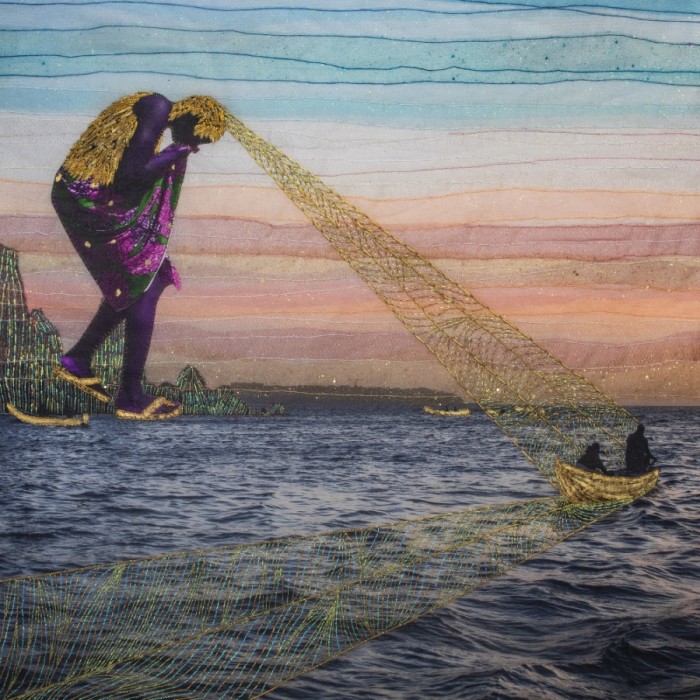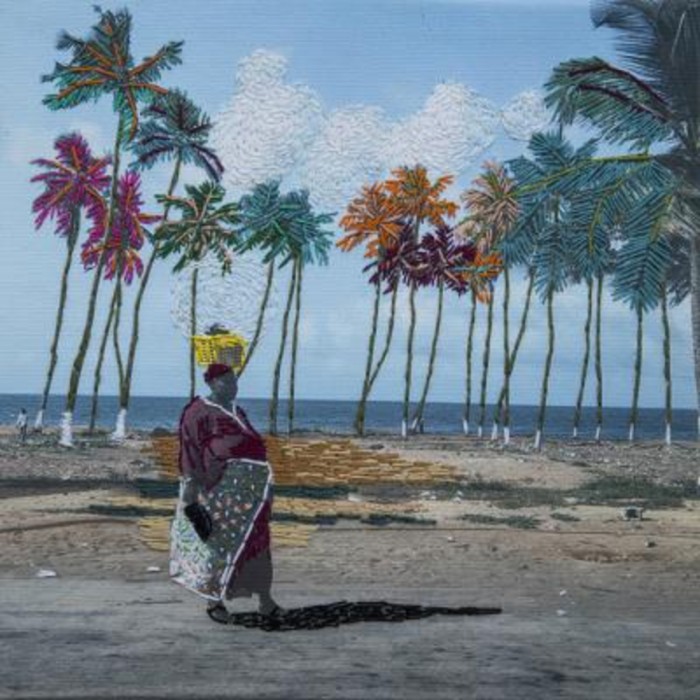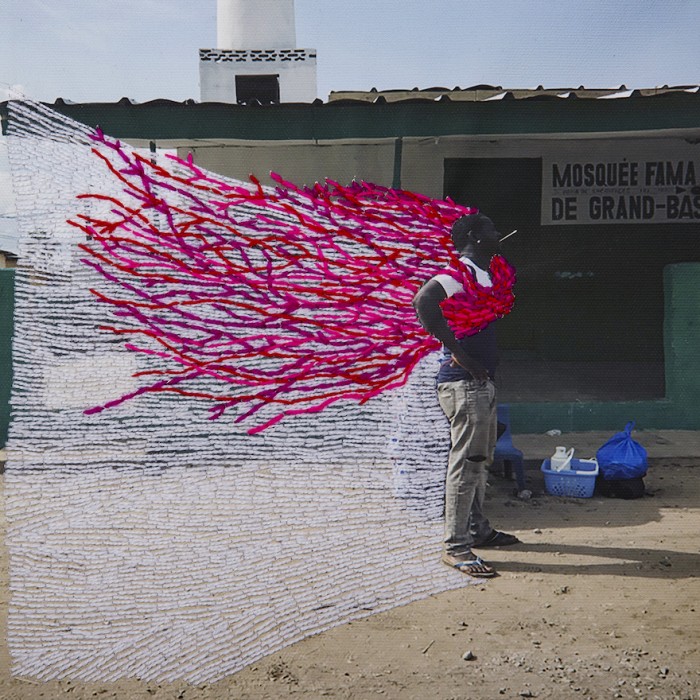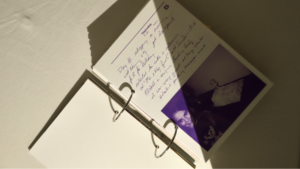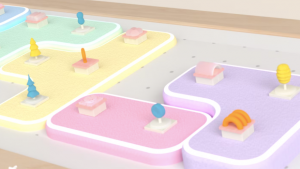Imagine sitting on a bustling boardwalk, positioned in such a manner as to allow yourself to observe every passerby with accuracy.
You blend in with the background noise, and you are unnoticed by everyone around you.
This is the feeling that Joana Choumali’s work evokes.
Many may not enjoy this feeling of invisibility, but as a documentary photographer and all-round observer of people, this is an ideal position to be in, and one in which she revels.
The work of Choumali is grounded in a moment of reflection, of herself, her culture, her people, the African continent and of the past, present and future. She engages with difficult topics that address issues about herself and her surroundings, and she does so using different mediums of art and photography.
“My work attempts to explore the varying experiences of human beings, the personal and the intimate,” says Choumali.
One of the intimate topics that she addresses is scarification, an ancient tradition practised by the people of West Africa. Titled ‘Haabre, The Last Generation’, the photo series looks at the dying practice of scarification due to the pressures of urbanisation and the adoption of western religions.
For Choumali, this project brings to light the changing identity of the African people, and highlights the powerful influence of globalisation.
“I always try to engage with the concepts of the African identity, in relation to history, especially the ways the black body is being represented,” says Choumali.
Together with Azu Nwagbogu, chief curator of the Zeitz MOCAA and director of LagosPhoto, Choumali published a book adaptation of the photo series, accompanied by an essay written by Nwagbogu.
Choumali hails from Côte d'Ivoire and trained in Morocco. She worked as an art director for an advertising agency for a couple of years before making the shift to photography.
Over the years her work has adorned the walls of some of the world’s most prestigious galleries and art spaces including the Zeitz MOCAA and the Venice Bienniale. This year we also saw some of Choumali’s work displayed on the tiny island of Sao Tome as part of the N’Golà Bienniale.
While her art has been celebrated the world over, the plight of the people of Côte d'Ivoire is always a subject matter to which her heart returns. In 2016 the resort town of Grand Bassam was hit by a brutal terrorist attack that left 19 people dead and 33 injured.
At the time Choumali found herself struck with an illness that would not allow her to go out and document the atrocities that had taken place. While she was healing she had learnt the art of embroidery as a coping mechanism and meditative practice.
“I still wanted to be an artist and be creative, even though my body wasn't working the way it was supposed to,” recalls Choumali.
After she had recovered, Choumali returned to the little resort town in order to capture the aftermath of the deadly event. She chose to document the state of the town using her phone, in order to be less intrusive and insensitive to the town’s people, but at the same time to maintain an open dialogue with them.
The series would serve as a window into the intimate and tragic experience, and give viewers a sense of how such an event feels from a personal dimension.
“Naturally the event had deep psychological effects on the people of this town. The pain, fear and trauma was indescribable,” says Choumali.
When she began embroidering on the images that she had captured in Grand Bassam, it was simply a personal project, not meant to be shared with anyone. But it was her friend, Nwagbogu, that encouraged her to share the project with the world.
“I was reluctant at first, because I had channeled my emotion into the series. Creating it was physically and emotionally challenging,” says Choumali.
The mixed media series is titled "ça va aller", a common Ivorian expression meaning ‘it will be OK’ and is often used in situations where things might not really be OK. The series recently won the 2019 Prix Prictet photography prize, making her the first African to win the prestigious award. The jury members of the awards praised Choumali's work, calling it “brilliantly original meditation on the ability of the human spirit to wrest hope and resilience from even the most traumatic events”.
The embroidered images address the historical and socio-political issues of her country, as well as the ways in which the people of Côte d'Ivoire deal with mental issues.
“In my country it is culturally taboo to speak about your feelings even when these kinds of disasters take place. People just say 'ça va aller' and move on. I wanted to create art that encourages people to speak up,” says Choumali.
For the mixed media art, she doesn’t have a favourite project or subject matter. The art that she creates and the projects on which she embarks allow her to grow as a human being and engage in conversations with her audience.
They help her to understand life better, to consider it from different perspectives, and it also serves as a sort of personal progress timeline.
Speaking about the state of the art and creative industry in Africa, she notes that right now is an exceptionally great time for art and creativity coming out of the continent.
She believes that the industry is incredibly dynamic at the moment and feels very grateful to be able to practise her art now, in this environment, rather than in the past.
“Given the increasing interest in African art from people around the world, young artists should remember to not always do what is ‘expected’ of them, but to remain true to themselves and their art,” says Choumali.
“Artists should remember that African art is inspired by your culture and continent, but doesn’t need to be limited to our Africanness... don’t limit yourself, do not accept everything as they appear and don’t remain comfortable,” she adds.
Read more:
Meet the Queen of Cowries: Lafalaise Dion
Ditiro Mashigo on creating products that speak to her essence
Sierra Leonean artist explores identity and human expression

